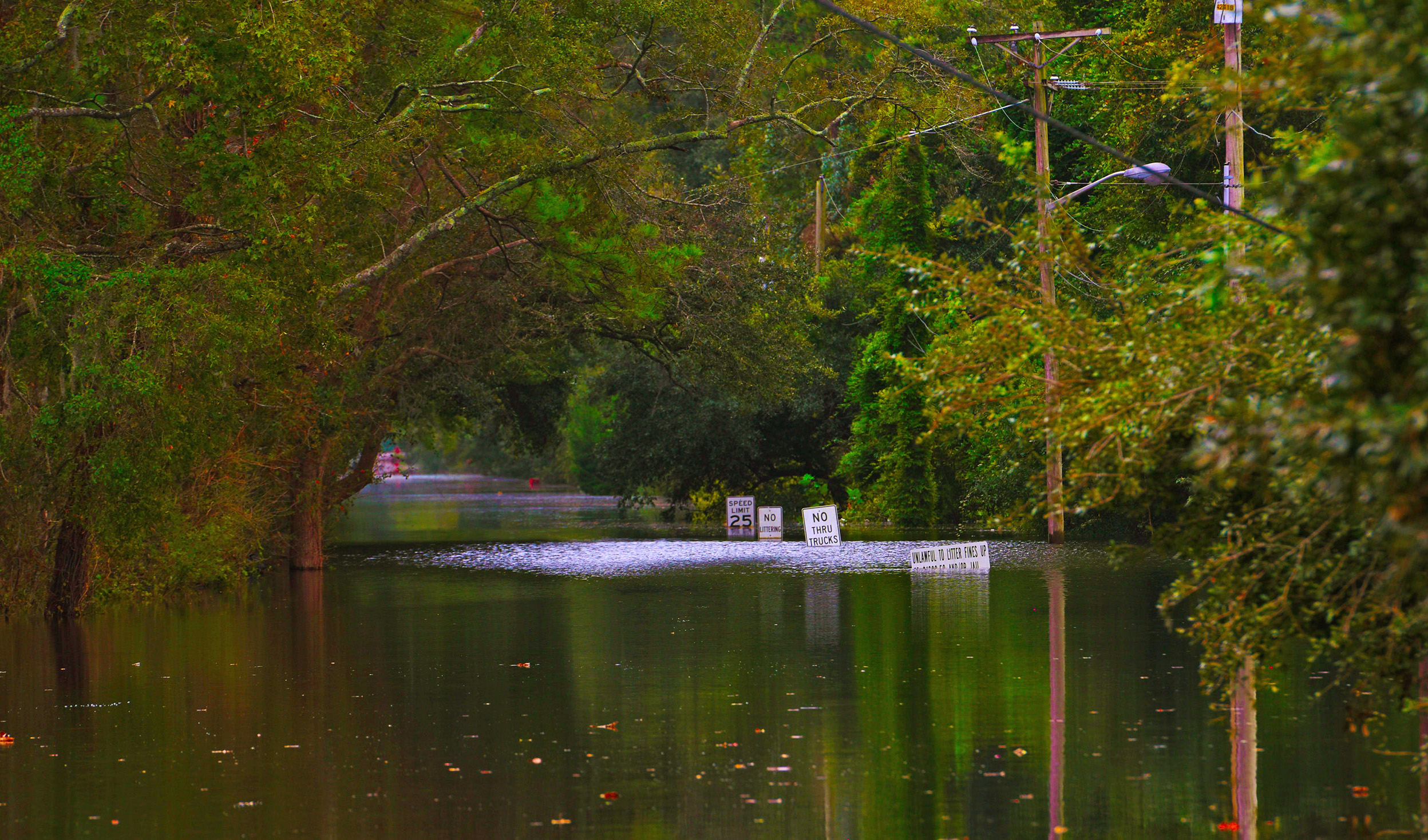Sea Grant Seeks Proposals on Community Resilience to Flooding

Contact:
Katie Mosher
919-515-9069, kmosher@ncsu.edu
South Atlantic Sea Grant programs — in North Carolina, South Carolina, Georgia and Florida — are seeking research proposals that quantify the impacts of flooding on access to infrastructure and the associated economic costs to coastal communities.
The regional funding opportunity addresses priorities of Sea Grant programs in the Southeast and the National Oceanic and Atmospheric Administration Office for Coastal Management in the South Atlantic Region. By partnering, the programs can support community-based, collaborative projects that tackle challenges and provide solutions at a regional scale.
This year, the South Atlantic Sea Grant directors named the regional project in honor of Karl Havens, former director of Florida Sea Grant who passed away on April 26, 2019.
“Karl was instrumental in launching our previous regional collaborative project and helped us develop the concept behind this request for proposals. For this and for all of Karl’s contributions to our Sea Grant programs, we thought it would be appropriate to remember him by naming this regional effort in his honor,” says Mark Risse, director of Georgia Sea Grant.
Research should include locations from North Carolina to Florida that are vulnerable to flooding. Projects must establish links between coastal flooding events, key infrastructure and the economic disruptions flooding causes to communities in the coastal zone. Successful proposals should be developed and implemented in collaboration with end-users who can use the results to guide actions that increase resilience in coastal communities. Regional proposals are required to be collaborative in nature and will include one principal investigator from each state: Florida, Georgia, South Carolina and North Carolina.
One proposal will be funded for two years for up to $400,000. The budget for each co-PI is limited to $100,000 over the two-year grant period. The lead PI may include an additional $25,000 for costs to serve as the lead project manager. A match of one non-federal dollar is required for every four federal dollars requested.
Details for this regional RFP are available at https://gacoast.uga.edu/wp-content/uploads/2019/08/2019-South-Atlantic-Regional-RFP.pdf
Investigators from each state must contact their state Sea Grant program director to discuss collaboration ideas and budget. Submissions are due by 5 p.m. on Oct. 25 via the Georgia eSeaGrant online portal: https://eseagrant.uga.edu/.
photo: Post-Florence flooding, courtesy of the U.S. National Guard.
##
- Categories:


